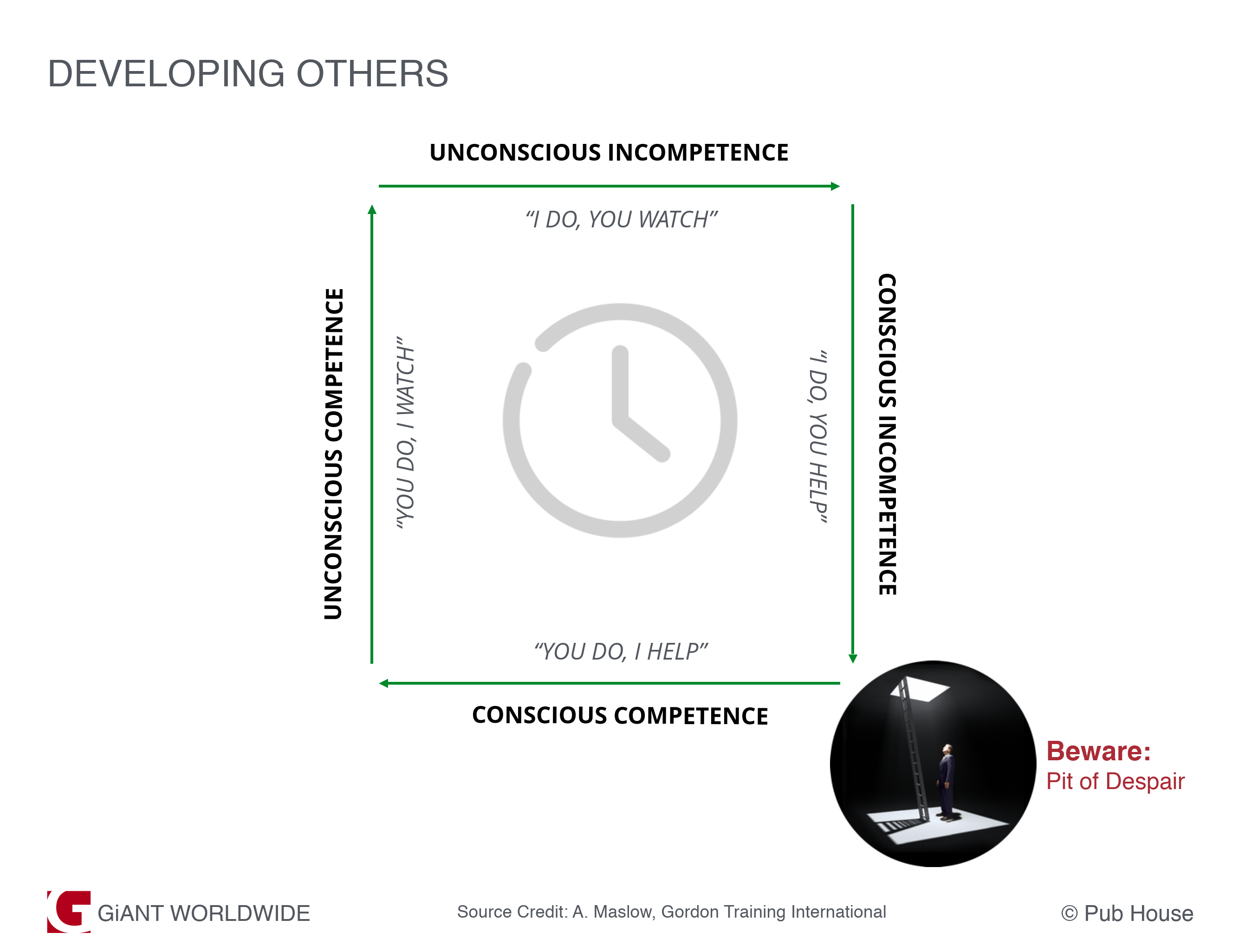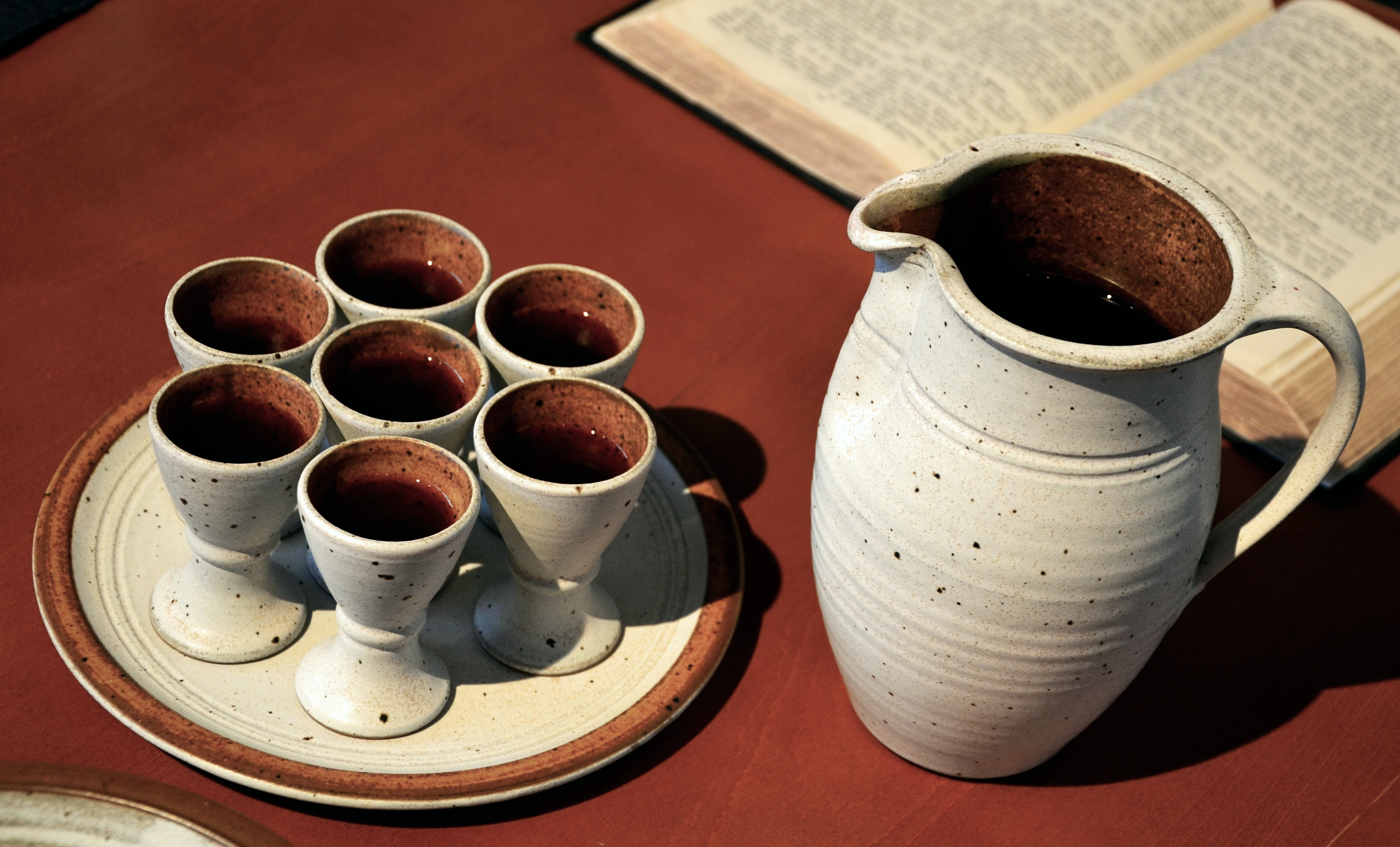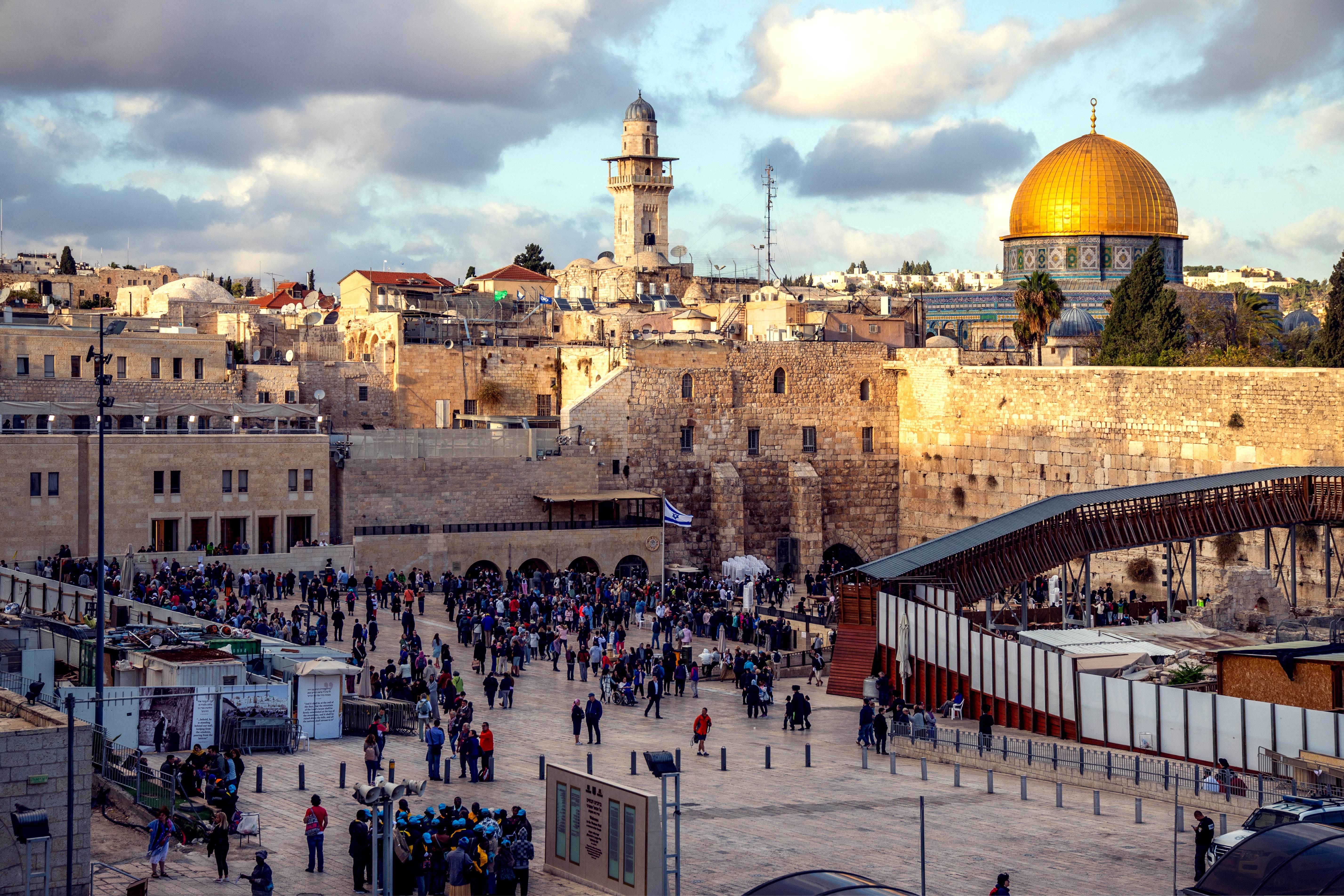Readings: Isaiah 52:12-53:12 • Psalm 22:1-31 • Heb. 4:14-16; 5:7-9 • John 18-19
This week’s theme is The Passion. One suggestion is simply to read the passages from a modern translation with a bit of discussion and a prayer after each reading. Isaiah shares the prophecies about Jesus’ sacrifice. Psalm 22 is the Psalm Jesus quotes and is about God’s deliverance. Hebrew talks about Jesus being our High Priest, and the two chapters in John share Jesus’ arrest, trial, death and burial. The service below can be done with a meal, with snacks or just on it’s own. It is a candle service.
Good Friday
Suggestion: This service works best with a 16 people or more. With a smaller group, members may need to read more than one passage. The congregation gathers around tables arranged in a large U with the communion table located in the open end. The communion table has a place setting for one, the Christ candle, as well as the communion elements. The fare is simple – homemade soups, vegetable trays, breads. It is evening, and the lights are somewhat dimmed. On the tables around the room are yet fifteen unlit candles, each having a couple of numbered verse references (one for lighting the candle and one for blowing the candle out) and matches. The meal begins with a prayer, conversation and fellowship.
Part way through the meal the room is hushed as the Christ candle is lit by the pastor, then one by one, the Scriptures of Christ’s last week are read, and the candles are lit. Then the pastor gives a brief meditation on the “Mandate of love” – Jesus’s command to his disciples to love one another.
Communion is observed simply – a hymn sung, the elements shared. Then the room lights dimmed way down, the readers begin again—the events of Jesus’ passion—with the conclusion of each reading, a candle extinguished. (You may need a small light or cell phone light to aid in the reading during this section.) After the last reading, the Christ candle is extinguished. The room is plunged into darkness. Silence, then a prayer of confession—a single candle lit in the hope of the resurrection.
The clean-up is one of hushed voices and quickly done—the congregation scattering till Sunday morning and the celebration of Easter.
Welcome to all!
Today, we are having a special candle service that I hope you find inspiring and thought provoking. We are going to read a number of scriptures with little commentary as we think through the final days of our Lord’s life on this earth.
This is not a funeral gathering because we know the end is actually the beginning. However, it is a somber time because we realize why Jesus came, why he gave up his equality, why he went to the cross, why he died – to save us.
All was done because of his amazing love for us.
Opening Prayer
So why do we call this “Good Friday?” There are three theories:
- Because it refers to Jesus’ victory over death and sin and led to the Resurrection—the very pinnacle of Christian celebrations.
- The word “Good” derives from God—so it is “God’s Friday.” This used to be in an old edition of the Catholic Encyclopedia, but there is no real basis for this.
- The word “good” is the word “Holy.” This agrees with other languages that refer to the day as “Sorrowful Friday,” “Sacred Friday” or “Passion Friday.” The day is Holy because the Holy One went to the cross in his love for us.
On this day, Jesus, the light of the world, willingly entered completely into our darkness by becoming our sin and taking on the penalty of sin—death. He did this so that we could live in the Light.
We will read 15 passages of Scripture and then light a candle after each reading. Let’s pause for a few moments between each reading to think about the events.
Please be quiet and attentive as the readings begin.
(Light the Christ Candle)

- Matthew 21:1-11, The Triumphal Entry
When they neared Jerusalem, Jesus sent two disciples to a village telling them they would find a donkey with her colt. “Untie her and bring them to me,” he said. “If anyone asks what you’re doing, say, ‘The Master needs them!’”
The disciples went and did exactly what Jesus told them to do. They led the donkey and colt out, laid some of their clothes on them, and Jesus mounted. Nearly all the people in the crowd threw their garments down on the road while others cut branches from the trees and threw them down as a welcome mat. Crowds went ahead and crowds followed, all of them calling out, “Hosanna to David’s son!” “Blessed is he who comes in God’s name!” “Hosanna in highest heaven!” (Light candle.)
- Matthew 21:12-17 Cleansing the Temple
Jesus went straight to the Temple and threw out everyone who had set up shop, buying and selling. He kicked over the tables of loan sharks and the stalls of dove menrchants. He said: “It is written: My house was designated a house of prayer; but you have made it a hangout for thieves.”
When the religious leaders saw what he was doing, and heard all the children running and shouting through the Temple, “Hosanna to David’s Son!” they were up in arms and took him to task. “Do you hear what these children are saying?”
Jesus said, “Yes, I hear them. And haven’t you read in God’s Word, ‘From the mouths of children and babies I’ll furnish a place of praise’?” (Light candle.)
- Mark 11:12-14, 19-25 Jesus curses the fig tree
As they left Bethany the next day, Jesus was hungry. He came to a fig tree in full leaf, but without fruit. He addressed the tree: “No one is going to eat fruit from you again—ever!” And his disciples overheard him.
In the morning they saw the fig tree, shriveled to a dry stick. Peter, remembering what had happened the previous day, said to him, “Rabbi, look—the fig tree you cursed is shriveled up!”
Jesus was matter-of-fact: “Embrace this God-life. Really embrace it, and nothing will be too much for you. This mountain, for instance: Just say, ‘Go jump in the lake’—and it’s as good as done. That’s why I urge you to pray for absolutely everything, ranging from small to large. Include everything as you embrace this God-life, and you’ll get God’s everything. (Light candle.)
- Mark 11:27-33 Jesus’ authority questioned
When they were back in Jerusalem and were walking through the Temple, the high priests, religious scholars, and leaders came up and demanded, “Show us your credentials. Who authorized you to speak and act like this?”
Jesus responded, “First answer my question and then I’ll present my credentials. About the baptism of John—who authorized it: heaven or humans? Tell me.”
They were on the spot, and knew it. “If we say ‘heaven,’ he’ll ask us why we didn’t believe John; if we say ‘humans,’ we’ll be up against it with the people because they all hold John up as a prophet.” They conceded. “We don’t know,” they said.
Jesus replied, “Then I won’t answer your question either.” (Light candle.)
- Luke 20:9-18 Parable of the tenants
Jesus told another story: “A man planted a vineyard and handed it over to farmhands as he went on a long trip. After some time he sent a servant back to collect the profits, but the farmhands beat him up and sent him off empty-handed. The man sent another servant. That one they beat black-and-blue, and sent him back. He tried a third time, again the servant was beaten and sent back.
Then the owner of the vineyard said, ‘I’ll send my beloved son. They’re bound to respect my son.’
“But when the farmhands saw him coming, they quickly put their heads together. ‘This is our chance—this is the heir! Let’s kill him and have it all to ourselves.’ They killed him and threw him over the fence.
“What do you think the owner of the vineyard will do? He’ll come and clean house. Then he’ll assign the care of the vineyard to others.” (Light candle.)
- Luke 21:5-19 Sign of the End
One day people were standing around talking about the Temple, remarking how beautiful it was when Jesus said, “The time is coming when every stone in that building will end up in a heap of rubble.”
They asked him, “Teacher, when is this going to happen?
“Watch out for the doomsday deceivers,” he said. “Many leaders are going to show up with forged identities claiming, ‘I’m the One,’ or, ‘The end is near.’ Don’t fall for any of that. When you hear of wars and uprisings, keep your head and don’t panic. This is routine history and no sign of the end.”
“Nation will fight nation and ruler fight ruler, over and over. Huge earthquakes will occur in various places. There will be famines. You’ll think at times that the very sky is falling.
“You’ll even be turned in by parents, brothers, relatives, and friends. Some of you will be killed. There’s no telling who will hate you because of me. Even so, every detail of your body and soul—even the hairs of your head!—is in my care; nothing of you will be lost. (Light candle.)
- John 12:20-36 Greeks come, predictions made
There were some Greeks in town who had come up to worship at the Feast. They approached Philip and said: “Sir, we want to see Jesus. Can you help us?”
Philip went and told Andrew. Andrew and Philip together told Jesus who said, “The time time has come for the Son of Man to be glorified. Listen carefully: Unless a grain of wheat is buried in the ground, dead to the world, it is never any more than a grain of wheat. But if it is buried, it sprouts and reproduces itself many times over.
This is why I came in the first place. I’ll say, ‘Father, put your glory on display.'”
A voice came out of the sky: “I have glorified it, and I’ll glorify it again.”
Jesus said, “The voice didn’t come for me but for you. I, as I am lifted up from the earth, will attract everyone to me and gather them around me.” He put it this way to show how he was going to be put to death. (Light candle.)
- Matthew 26:1-13 Anointing
When Jesus was at Bethany, a guest of Simon the Leper, a woman came up to him as he was eating dinner and anointed him with a bottle of very expensive perfume. When the disciples saw what was happening, they were furious. “That’s criminal! This could have been sold for a lot and the money handed out to the poor.”
When Jesus realized what was going on, he intervened. “Why are you giving this woman a hard time? She has just done something wonderfully significant for me. You will have the poor with you every day for the rest of your lives, but not me. When she poured this perfume on my body, what she really did was anoint me for burial. You can be sure that wherever in the whole world the Message is preached, what she has just done is going to be remembered and admired.” (Light candle.)
- Matthew 26:14-16 Betrayal
That is when one of the Twelve, the one named Judas Iscariot, went to the cabal of high priests and said, “What will you give me if I hand him over to you?” They settled on thirty silver pieces. He began looking for just the right moment to hand him over. (Light candle.)
- Luke 22:7-14 Preparation
The Day of Unleavened Bread came, the day the Passover lamb was butchered. Jesus sent Peter and John off, saying, “Go prepare the Passover for us so we can eat it together.”
They said, “Where do you want us to do this?”
He said, “Keep your eyes open as you enter the city. A man carrying a water jug will meet you. Follow him home. Then speak with the owner of the house: The Teacher wants to know, ‘Where is the guest room where I can eat the Passover meal with my disciples?’ He will show you a spacious second-story room, swept and ready. Prepare the meal there.”
They left, found everything just as he told them, and prepared the Passover meal.
When it was time, he sat down, all the apostles with him, and said, “You’ve no idea how much I have looked forward to eating this Passover meal with you before I enter my time of suffering. It’s the last one I’ll eat until we all eat it together in the kingdom of God.” (Light candle.)
- John 13:2-17 Washing feet
Just before the Passover Feast, Jesus knew that the time had come to leave this world to go to the Father. He knew that the Father had put him in complete charge of everything, that he came from God and was on his way back to God. So he got up from the supper table, set aside his robe, and put on an apron. Then he poured water into a basin and began to wash the feet of the disciples, drying them with his apron.
After he had finished washing their feet, he took his robe, put it back on, and went back to his place at the table.
Then he said, “Do you understand what I have done to you? You address me as ‘Teacher’ and ‘Master,’ and rightly so. That is what I am. So if I, the Master and Teacher, washed your feet, you must now wash each other’s feet. I’ve laid down a pattern for you. What I’ve done, you do. I’m only pointing out the obvious. A servant is not ranked above his master; an employee doesn’t give orders to the employer. If you understand what I’m telling you, act like it—and live a blessed life. (Light candle.)
- John 13:18-30 Predicts betrayal
I’m not including all of you in this. I know precisely whom I’ve selected, so as not to interfere with the fulfillment of this Scripture:
The one who ate bread at my table… Turned on his heel against me.
“I’m telling you all this ahead of time so that when it happens you will believe that I am who I say I am. Make sure you get this right: Receiving someone I send is the same as receiving me, just as receiving me is the same as receiving the One who sent me.”
After he said these things, Jesus became visibly upset, and then he told them why. “One of you is going to betray me.”
Jesus turned to Judas and said, “What you must do, do quickly.”
Judas left. It was night. (Light candle.)
- John 13:31-38 Predicts Peters denial
When he had left, Jesus said, “Children, I am with you for only a short time longer. You are going to look high and low for me. But just as I told the Jews, I’m telling you: ‘Where I go, you are not able to come.’
Simon Peter asked, “Master, just where are you going?”
Jesus answered, “You can’t now follow me where I’m going. You will follow later.”
“Master,” said Peter, “why can’t I follow now? I’ll lay down my life for you!”
“Really? You’ll lay down your life for me? The truth is that before the rooster crows, you’ll deny me three times.” (Light candle.)
- John 14:1-6; 16-21 Comfort
“Don’t let this throw you. You trust God, don’t you? Trust me. There is plenty of room for you in my Father’s home. If that weren’t so, would I have told you that I’m on my way to get a room ready for you? And if I’m on my way to get your room ready, I’ll come back and get you so you can live where I live. And you already know the road I’m taking.”
Thomas said, “Master, we have no idea where you’re going. How do you expect us to know the way?”
Jesus said, “I am the Way, also the Truth, also the Life. No one gets to the Father apart from me. If you really knew me, you would know my Father as well. From now on, you do know him. You’ve even seen him!” (Light candle.)
- Luke 22:15-17 Passover
Again, Jesus said: “You’ve no idea how much I have looked forward to eating this Passover meal with you before I enter my time of suffering. It’s the last one I’ll eat until we all eat it together in the kingdom of God.”
Taking the cup, he blessed it, then said, “Take this and pass it among you. As for me, I’ll not drink wine again until the kingdom of God arrives.” (Light candle.)
Celebration of the Lord’s Supper
Congregation recites The Lord’s Prayer
Exhortation – The New Command – John 13:34-35
Part 2: Passion of the Lord Jesus Christ
- Matthew 26:30-35 Jesus’ warning
They sang a hymn and went directly to Mount Olives. Then Jesus told them, “Before the night’s over, you’re going to fall to pieces because of what happens to me.
Peter broke in, “Even if everyone else falls to pieces on account of you, I won’t.”
“Don’t be so sure,” Jesus said. “This very night, before the rooster crows up the dawn, you will deny me three times.”
Peter protested, “Even if I had to die with you, I would never deny you.” All the others said the same thing. (Blow out candle.)
- Matthew 26:36–46 Gethsemane
Then Jesus went with them to a garden called Gethsemane and told his disciples, “Stay here while I go over there and pray.” Taking along Peter and the two sons of Zebedee, he plunged into an agonizing sorrow and said: “This sorrow is crushing my life out. Stay here and keep vigil with me.”
Going a little ahead, he fell on his face, praying, “My Father, if there is any way, get me out of this. But please, not what I want. You, what do you want?”
When he came back to his disciples, he found them sound asleep. He then left them a second time, and then a third time, again praying: “My Father, if there is no other way than this, drinking this cup to the dregs, I’m ready. Do it your way.”
When he came back the last time, he said, “My time is up, the Son of Man is about to be handed over to the hands of sinners. Get up! Let’s get going! My betrayer is here.” (Blow out candle.)
- Matthew 26:47–56 Arrested
The words were barely out of his mouth when Judas (the one from the Twelve) showed up, and with him a gang from the high priests and religious leaders brandishing swords and clubs. He went straight to Jesus, greeted him, “How are you, Rabbi?” and kissed him.
Then they came on him—grabbed him and roughed him up. One of those with Jesus pulled his sword and, taking a swing at the Chief Priest’s servant, cut off his ear.
Jesus said, “Put your sword back where it belongs. Don’t you realize that I am able right now to call to my Father, and twelve companies—more, if I want them—of fighting angels would be here, battle-ready? But if I did that, how would the Scriptures come true that say this is the way it has to be?”
Then all the disciples cut and ran. (Blow out candle.)
- John 18:15–27 Peter’s denial
Simon Peter and another disciple followed Jesus. That other disciple was known to the Chief Priest, and so he went in with Jesus to the Chief Priest’s courtyard. Peter had to stay outside. Then the other disciple went out, spoke to the doorkeeper, and got Peter in.
The young woman who was the doorkeeper said to Peter, “Aren’t you one of this man’s disciples?”
He said, “No, I’m not.”
The servants and police had made a fire because of the cold and were huddled there warming themselves. Peter stood with them, trying to get warm. The others there said to him, “Aren’t you one of his disciples?”
He denied it, “Not me.”
One of the Chief Priest’s servants, a relative of the man whose ear Peter had cut off, said, “Didn’t I see you in the garden with him?”
Again, Peter denied it. Just then a rooster crowed. (Blow out candle.)
- Luke 22:63-71 Beaten and condemned
The men in charge of Jesus began poking fun at him, slapping him around. They put a blindfold on him and taunted, “Who hit you that time?”
When it was morning, the religious leaders of the people and the high priests and scholars all got together and brought him before their High Council. They said, “Are you the Messiah?”
He answered, “If I said yes, you wouldn’t believe me. If I asked what you meant by your question, you wouldn’t answer me. So here’s what I have to say: From here on the Son of Man takes his place at God’s right hand, the place of power.”
They all said, “So you admit your claim to be the Son of God?”
“You’re the ones who keep saying it,” he said.
But they had made up their minds, “Why do we need any more evidence? We’ve all heard him as good as say it himself.” (Blow out candle.)
- John 18:28-38 Pilate
They led Jesus to the Roman governor’s palace. Pilate came out to them and spoke. “What charge do you bring against this man?”
They said, “If he hadn’t been doing something evil, do you think we’d be here bothering you?”
Pilate said, “You take him. Judge him by your law.”
The Jews said, “We’re not allowed to kill anyone.”
Pilate went back into the palace and called for Jesus. He said, “Are you the ‘King of the Jews’?”
Jesus answered, “You tell me. Because I am King, I was born and entered the world so that I could witness to the truth. Everyone who cares for truth, who has any feeling for the truth, recognizes my voice.”
Pilate said, “What is truth?”
Then he went back out to the Jews and told them, “I find nothing wrong in this man. It’s your custom that I pardon one prisoner at Passover. Do you want me to pardon the ‘King of the Jews’?” (Blow out candle.)
- Luke 23:5-21 Herod
But they were vehement. “He’s stirring up unrest among the people with his teaching, disturbing the peace everywhere, starting in Galilee and now all through Judea. He’s a dangerous man, endangering the peace.”
When Pilate heard that, he asked, “So, he’s a Galilean?” And he sent Jesus to Herod.
Herod was delighted when Jesus showed up. He had wanted for a long time to see him and hoped to see Jesus do something spectacular. He peppered him with questions. Jesus didn’t answer—not one word. But the high priests and religion scholars were right there, saying their piece, strident and shrill in their accusations.
Mightily offended, Herod turned on Jesus. His soldiers joined in, taunting and jeering. Then they dressed him up in an elaborate king costume and sent him back to Pilate.
Pilate called in the high priests, rulers, and the others and said, “You brought this man to me as a disturber of the peace. I examined him in front of all of you and found there was nothing to your charge. And neither did Herod, for he has sent him back here with a clean bill of health. It’s clear that he’s done nothing wrong, let alone anything deserving death. I’m going to warn him to watch his step and let him go.”
At that, the crowd went wild: “Kill him! Give us Barabbas!” (Barabbas had been thrown in prison for starting a riot in the city and for murder.) Pilate still wanted to let Jesus go, and so spoke out again.
But they kept shouting back, “Crucify! Crucify him!” (Blow out candle.)
- John 19:1–17 Crown of Thorns
So Pilate took Jesus and had him whipped. The soldiers, having braided a crown from thorns, set it on his head, threw a purple robe over him, and approached him with, “Hail, King of the Jews!” Then they greeted him with slaps in the face.
Pilate went back out again and said to them, “I present him to you, but I want you to know that I do not find him guilty of any crime.” Just then Jesus came out wearing the thorn crown and purple robe.
When the high priests and police saw him, they shouted in a frenzy, “Crucify! Crucify!”
Pilate told them, “You take him. You crucify him. I find nothing wrong with him.”
The Jews answered, “We have a law, and by that law he must die because he claimed to be the Son of God.”
When Pilate heard this, he became even more scared. He went back into the palace and said to Jesus, “Where did you come from?”
Jesus gave no answer.
Pilate said, “You won’t talk? Don’t you know that I have the authority to pardon you, and the authority to—crucify you?”
Jesus said, “You haven’t a shred of authority over me except what has been given you from heaven. That’s why the one who betrayed me to you has committed a far greater fault.”
Pilate caved in to the crowds demand and turned Jesus over to be crucified. (Blow out candle.)
- Luke 23:26-37 Crucified on Calvary
As they led him off, they made Simon, a man from Cyrene who happened to be coming in from the countryside, carry the cross behind Jesus. A huge crowd of people followed, along with women weeping and carrying on.
Two others, both criminals, were taken along with him for execution.
When they got to the place called Skull Hill, they crucified him, along with the criminals, one on his right, the other on his left.
Jesus prayed, “Father, forgive them; they don’t know what they’re doing.”
Dividing up his clothes, they threw dice for them. The people stood there staring at Jesus, and the ringleaders made faces, taunting, “He saved others. Let’s see him save himself! The Messiah of God—ha! The Chosen—ha!”
The soldiers also came up and poked fun at him, making a game of it. They toasted him with sour wine: “So you’re King of the Jews! Save yourself!” (Blow out candle.)
- John 19:19–22 “King of the Jews”
Pilate wrote a sign and had it placed on the cross. It read:
Jesus the Nazarene
the king of the Jews.
Many of the Jews read the sign because the place where Jesus was crucified was right next to the city. It was written in Hebrew, Latin, and Greek. The Jewish high priests objected. “Don’t write,” they said to Pilate, “‘The King of the Jews.’ Make it, ‘This man said, ‘I am the King of the Jews.'” (Blow out candle.)
- Luke 23:39–43 Two Thieves
One of the criminals hanging alongside cursed him: “Some Messiah you are! Save yourself! Save us!”
But the other one made him shut up: “Have you no fear of God? You’re getting the same as him. We deserve this, but not him—he did nothing to deserve this.”
Then he said, “Jesus, remember me when you enter your kingdom.”
He said, “Don’t worry, I will. Today you will join me in paradise.” (Blow out candle.)
- John 19:23–27 Divided Garments
When they crucified him, the Roman soldiers took his clothes and divided them up four ways, to each soldier a fourth. But his robe was seamless, a single piece of weaving, so they said to each other, “Let’s not tear it up. Let’s throw dice to see who gets it.” This confirmed the Scripture that said, “They divided up my clothes among them and threw dice for my coat.” (The soldiers validated the Scriptures!)
While the soldiers were looking after themselves, Jesus’ mother, his aunt, Mary the wife of Clopas, and Mary Magdalene stood at the foot of the cross. Jesus saw his mother and the disciple he loved standing near her. He said to his mother, “Woman, here is your son.” Then to the disciple, “Here is your mother.” From that moment the disciple accepted her as his own mother. (Blow out candle.)
- Matthew 27:45–48 Jesus quotes the Psalm
From noon to three, the whole earth was dark. Around mid-afternoon Jesus groaned out of the depths, crying loudly, “Eli, Eli, lama sabachthani?” which means, “My God, my God, why have you abandoned me?”
Some bystanders who heard him said, “He’s calling for Elijah.” One of them ran and got a sponge soaked in sour wine and lifted it on a stick so he could drink. The others joked, “Don’t be in such a hurry. Let’s see if Elijah comes and saves him.” (Blow out candle.)
- Luke 23:45b-48 Into God’s hands
The Temple curtain split right down the middle. Jesus called loudly, “Father, I place my life in your hands!” Then he breathed his last.
When the captain there saw what happened, he honored God: “This man was innocent! A good man, and innocent!”
All who had come around as spectators to watch the show, when they saw what actually happened, were overcome with grief and headed home. Those who knew Jesus well, along with the women who had followed him from Galilee, stood at a respectful distance and kept vigil. (Blow out candle.)
- John 19:28-37 It is finished
Jesus, seeing that everything had been completed so that the Scripture record might also be complete, then said, “I’m thirsty.”
A jug of sour wine was standing by. Someone put a sponge soaked with the wine on a javelin and lifted it to his mouth. After he took the wine, Jesus said, “It’s done . . . complete.” Bowing his head, he offered up his spirit.
Then the Jews, since it was the day of Sabbath preparation, and so the bodies wouldn’t stay on the crosses over the Sabbath (it was a high holy day that year), petitioned Pilate that their legs be broken to speed death, and the bodies taken down. So the soldiers came and broke the legs of the first man crucified with Jesus, and then the other. When they got to Jesus, they saw that he was already dead, so they didn’t break his legs. One of the soldiers stabbed him in the side with his spear. Blood and water gushed out.
The eyewitness to these things has presented an accurate report. He saw it himself and is telling the truth so that you, also, will believe.
These things that happened confirmed the Scripture, “Not a bone in his body was broken,” and the other Scripture that reads, “They will stare at the one they pierced.” (Blow out candle.)
Christ’s Candle extinguished
Silent Prayers
Mark 10:33 – 34 (light one Candle)
Back on the road, they set out for Jerusalem. Jesus had a head start on them, and they were following, puzzled and not just a little afraid. He took the Twelve and began again to go over what to expect next. “Listen to me carefully. We’re on our way up to Jerusalem. When we get there, the Son of Man will be betrayed to the religious leaders and scholars. They will sentence him to death. Then they will hand him over to the Romans, who will mock and spit on him, give him the third degree, and kill him. After three days he will rise alive.”
Prayer of dismissal










